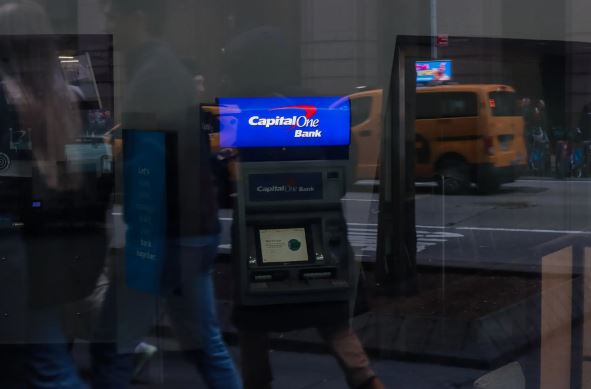In a significant move reshaping the landscape of the credit card industry, Capital One announced on Monday its plans to acquire Discover Financial Services in an all-stock transaction valued at $35.3 billion. This merger between two of the largest credit card companies in the United States is poised to have far-reaching implications within the financial sector.
Matt Schulz, chief credit analyst at LendingTree, noted that this acquisition would consolidate power in a market already dominated by a handful of major players, thereby reducing the number of significant competitors. Capital One, boasting $479 billion in assets, is among the nation’s largest banks and issues credit cards on the Visa and Mastercard networks. Acquiring Discover will provide Capital One access to Discover’s credit card network, which serves 305 million cardholders, supplementing its existing base of over 100 million customers. Despite its prominence, Discover lags behind competitors American Express, Mastercard, and Visa in terms of cardholder numbers.
However, consumer advocates have raised concerns about potential antitrust implications arising from the merger. Jesse Van Tol, CEO of the National Community Reinvestment Coalition, expressed skepticism about how federal regulators would view the deal, given their mandate to ensure that mergers benefit both the public and insiders. This acquisition will serve as a litmus test for regulatory scrutiny on bank mergers, particularly since the Office of the Comptroller of the Currency recently signaled its intention to tighten approvals for such transactions.
David Schiff, a senior partner at West Monroe, highlighted the heightened scrutiny facing deals in the financial industry, referencing New York Community Bank’s acquisition of assets from Signature Bank during the regional banking crisis. Schiff suggested that politicians could seize on such deals, which regulators may have hastily approved, as examples of regulatory oversight failures.
As part of the acquisition, Capital One will offer Discover shareholders a 26 percent premium based on the company’s closing stock price on Friday. Following the completion of the deal, expected in late 2024 or early 2025 pending regulatory approval, Capital One shareholders will own approximately 60 percent of the combined entity, with Discover shareholders holding the remainder. Discover was valued at about $28 billion, while Capital One was valued at approximately $52 billion at Friday’s market close.
Capital One’s strategic rationale for the acquisition revolves around bolstering its global payments network and enhancing its capabilities in working directly with merchants and small businesses. Additionally, the deal provides Discover with increased scale to compete more effectively with other credit card companies. Capital One anticipates generating $2.7 billion in pretax savings as a result of the agreement.
Richard Fairbank, founder, chairman, and chief executive of Capital One, emphasized the transformative potential of the acquisition, stating that it presents a unique opportunity to build a payments network capable of competing with industry giants. This move aligns with Capital One’s broader strategy of expanding its presence in the digital space, as evidenced by its acquisition of Velocity Black, a digital concierge company, in June.
Discover, while emerging from a period of turbulence marked by leadership changes and profit declines, stands to benefit from the acquisition. The company’s new chief executive, Michael G. Rhodes, was appointed in December as part of efforts to enhance corporate governance and steer Discover through its challenges.
Originally introduced by Sears in 1985, Discover has undergone several transformations, including its tenure under Morgan Stanley before being spun out through an initial public offering in 2007. The acquisition by Capital One raises questions about whether regulators will perceive it as a beneficial intervention to support a struggling player in the market or as a potential threat to competition.
Overall, the Capital One-Discover deal represents a pivotal moment in the financial services industry, with its implications reverberating across the credit card landscape and beyond.

